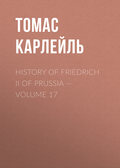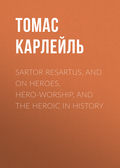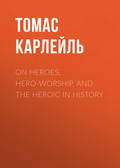
Томас Карлейль
Sacred Books of the East
Ahura Mazda answered:—
"The worshippers of Mazda shall make a receptacle out of the reach of the dog, of the fox, and of the wolf, and wherein rain-water cannot stay. They shall make it, if they can afford it, with stones, plaster, or earth; if they cannot afford it, they shall lay down the dead man on the ground, on his carpet and his pillow, clothed with the light of heaven, and beholding the sun."
FUNERALS AND PURIFICATION
If a dog or a man die under a hut of wood or a hut of felt, what shall the worshippers of Mazda do?
Ahura Mazda answered:—
"They shall search for a Dakhma, they shall look for a Dakhma all around. If they find it easier to remove the dead, they shall take out the dead, they shall let the house stand, and shall perfume it with Urvâsna or Vohú-gaona, or Vohú-kereti, or Hadhâ-naepata, or any other sweet-smelling plant. If they find it easier to remove the house, they shall take away the house, they shall let the dead lie on the spot, and shall perfume the house with Urvâsna, or Vohú-gaona, or Vohú-kereti, or Hadhâ-naêpata, or any other sweet-smelling plant."
O Maker of the material world, thou Holy One! If in the house of a worshipper of Mazda a dog or a man happens to die, and it is raining, or snowing, or blowing, or it is dark, or the day is at its end, when flocks and men lose their way, what shall the worshippers of Mazda do?
Ahura Mazda answered:—
"The place in that house whereof the ground is the cleanest and the driest, and the least passed through by flocks and herds, by the fire of Ahura Mazda, by the consecrated bundles of Baresma, and by the faithful."
O Maker of the material world, thou Holy One! How far from the fire? How far from the water? How far from the consecrated bundles of Baresma? How far from the faithful?
Ahura Mazda answered:—
"Thirty paces from the fire; thirty paces from the water; thirty paces from the consecrated bundles of Baresma; three paces from the faithful;—on that place they shall dig a grave, half a foot deep if the earth be hard, half the height of a man if it be soft; they shall cover the surface of the grave with ashes or cow-dung; they shall cover the surface of it with dust of bricks, of stones, or of dry earth. And they shall let the lifeless body lie there, for two nights, or three nights, or a month long, until the birds begin to fly, the plants to grow, the hidden floods to flow, and the wind to dry up the earth. And when the birds begin to fly, the plants to grow, the hidden floods to flow, and the wind to dry up the earth, then the worshippers of Mazda shall make a breach in the wall of the house, and two men, strong and skilful, having stripped their clothes off, shall take up the body from the clay or the stones, or from the plastered house, and they shall lay it down on a place where they know there are always corpse-eating dogs and corpse-eating birds. Afterwards the corpse-bearers shall sit down, three paces from the dead, and the holy Ratu shall proclaim to the worshippers of Mazda thus: 'Worshippers of Mazda, let the urine be brought here wherewith the corpse-bearers there shall wash their hair and their bodies.'"
O Maker of the material world, thou Holy One! Which is the urine wherewith the corpse-bearers shall wash their hair and their bodies? Is it of sheep or of oxen? Is it of man or of woman?
Ahura Mazda answered:—
"It is of sheep or of oxen; not of man nor of woman, except a man or a woman who has married the next-of-kin: these shall therefore procure the urine wherewith the corpse-bearers shall wash their hair and their bodies."
O Maker of the material world, thou Holy One! Can the way, whereon the carcasses of dogs or corpses of men have been carried, be passed through again by flocks and herds, by men and women, by the fire of Ahura Mazda, by the consecrated bundles of Baresma, and by the faithful?
Ahura Mazda answered:—
"It cannot be passed through again by flocks and herds, nor by men and women, nor by the fire of Ahura Mazda, nor by the consecrated bundles of Baresma, nor by the faithful. They shall therefore cause a yellow dog with four eyes,13 or a white dog with yellow ears, to go three times through that way. When either the yellow dog with four eyes, or the white dog with yellow ears, is brought there, then the Drug Nasu flies away to the regions of the north, in the shape of a raging fly, with knees and tail sticking out, droning without end, and like unto the foulest Khrafstras. If the dog goes unwillingly, O Spitama Zarathustra, they shall cause the yellow dog with four eyes, or the white dog with yellow ears, to go six times through that way. When either the yellow dog with four eyes, or the white dog with yellow ears, is brought there, then the Drug Nasu flies away to the regions of the north, in the shape of a raging fly, with knees and tail sticking out, droning without end, and like unto the foulest Khrafstras. If the dog goes unwillingly, they shall cause the yellow dog with four eyes, or the white dog with yellow ears, to go nine times through that way. When either the yellow dog with four eyes, or the white dog with yellow ears, has been brought there, then the Drug Nasu flies away to the regions of the north, in the shape of a raging fly, with knees and tail sticking out, droning without end, and like unto the foulest Khrafstras. An Âthravan shall first go along the way and shall say aloud these victorious words: 'Yathâ ahû vairyô:—The will of the Lord is the law of righteousness. The gifts of Vohu-manô to the deeds done in this world for Mazda. He who relieves the poor makes Ahura king. What protector hast thou given unto me, O Mazda! while the hate of the wicked encompasses me? Whom but thy Âtar and Vohu-manô, through whose work I keep on the world of righteousness? Reveal therefore to me thy Religion as thy rule! Who is the victorious who will protect thy teaching? Make it clear that I am the guide for both worlds. May Sraosha come with Vohu-manô and help whomsoever thou pleasest, O Mazda! Keep us from our hater, O Mazda and Spenta Ârmaiti! Perish, O fiendish Drug! Perish, O brood of the fiend! Perish, O creation of the fiend! Perish, O world of the fiend! Perish away, O Drug! Rush away, O Drug! Perish away, O Drug! Perish away to the regions of the north, never more to give unto death the living world of Righteousness!' Then the worshippers of Mazda may at their will bring by those ways sheep and oxen, men and women, and Fire, the son of Ahura Mazda, the consecrated bundles of Baresma, and the faithful. The worshippers of Mazda may afterwards prepare meals with meat and wine in that house; it shall be clean, and there will be no sin, as before."
O Maker of the material world, thou Holy One! If a man shall throw clothes, either of skin or woven, upon a dead body, enough to cover the feet, what is the penalty that he shall pay?
Ahura Mazda answered:—
"Four hundred stripes with the Aspahê-astra, four hundred stripes with the Sraoshô-karana."
O Maker of the material world, thou Holy One! If a man shall throw clothes, either of skin or woven, upon a dead body, enough to cover both legs, what is the penalty that he shall pay?
Ahura Mazda answered:—
"Six hundred stripes with the Aspahê-astra, six hundred stripes with the Sraoshô-karana."
O Maker of the material world, thou Holy One! If a man shall throw clothes, either of skin or woven, upon a dead body, enough to cover the whole body, what is the penalty that he shall pay?
Ahura Mazda answered:—
"A thousand stripes with the Aspahê-astra, a thousand stripes with the Sraoshô-karana."
O Maker of the material world, thou Holy One! If a man, by force, commits the unnatural sin, what is the penalty that he shall pay?
Ahura Mazda answered:—
"Eight hundred stripes with the Aspahê-astra, eight hundred stripes with the Sraoshô-karana."
O Maker of the material world, thou Holy One! If a man voluntarily commits the unnatural sin, what is the penalty for it? What is the atonement for it? What is the cleansing from it?
Ahura Mazda answered:—
"For that deed there is nothing that can pay, nothing that can atone, nothing that can cleanse from it; it is a trespass for which there is no atonement, forever and ever."
O Maker of the material world, thou Holy One! Who is the man that is a Deva? Who is he that is a worshipper of the Devas? that is a male paramour of the Devas? that is a female paramour of the Devas? that is a wife to the Deva? that is as bad as a Deva? that is in his whole being a Deva? Who is he that is a Deva before he dies, and becomes one of the unseen Devas after death?
Ahura Mazda answered:—
"The man that lies with mankind as man lies with womankind, or as woman lies with mankind, is the man that is a Deva; this one is the man that is a worshipper of the Devas, that is a male paramour of the Devas, that is a female paramour of the Devas, that is a wife to the Deva; this is the man that is as bad as a Deva, that is in his whole being a Deva; this is the man that is a Deva before he dies, and becomes one of the unseen Devas after death: so is he, whether he has lain with mankind as mankind, or as womankind."
O Maker of the material world, thou Holy One! Shall the man be clean who has touched a corpse that has been dried up and dead more than a year?
Ahura Mazda answered:—
"He shall. The dry mingles not with the dry. Should the dry mingle with the dry, how soon all this material world of mine would be only one Peshôtanu, bent on the destruction of righteousness, and whose soul will cry and wail! so numberless are the beings that die upon the face of the earth."
CLEANSING THE UNCLEAN
Zarathustra asked Ahura Mazda:—
O most beneficent Spirit, Maker of the material world, thou Holy One! To whom shall they apply here below, who want to cleanse their body defiled by the dead?
Ahura Mazda answered:—
"To a pious man, O Spitama Zarathustra! who knows how to speak, who speaks truth, who has learned the Holy Word, who is pious, and knows best the rites of cleansing according to the law of Mazda. That man shall fell the trees off the surface of the ground on a space of nine Vibâzus square; in that part of the ground where there is least water and where there are fewest trees, the part which is the cleanest and driest, and the least passed through by sheep and oxen, and by the fire of Ahura Mazda, by the consecrated bundles of Baresma, and by the faithful."
How far from the fire? How far from the water? How far from the consecrated bundles of Baresma? How far from the faithful?
Ahura Mazda answered:—
"Thirty paces from the fire, thirty paces from the water, thirty paces from the consecrated bundles of Baresma, three paces from the faithful. Then thou shalt dig a hole, two fingers deep if the summer has come, four fingers deep if the winter and ice have come." How far from one another? "One pace." How much is the pace? "As much as three feet. Then thou shalt dig three holes more, two fingers deep if the summer has come, four fingers deep if the winter and ice have come." How far from the former six? "Three paces." What sort of paces? "Such as are taken in walking." How much are those three paces? "As much as nine feet. Then thou shalt draw a furrow all around with a metal knife. Then thou shalt draw twelve furrows; three of which thou shalt draw to surround and divide from the rest the first three holes; three thou shalt draw to surround and divide the first six holes; three thou shalt draw to surround and divide the nine holes; three thou shalt draw around the three inferior holes, outside the six other holes. At each of the three times nine feet, thou shalt place stones as steps to the holes; or potsherds, or stumps, or clods, or any hard matter. Then the man defiled shall walk to the holes; thou, O Zarathustra! shalt stand outside by the furrow, and thou shalt recite, 'Nemaskâ yâ ârmaitis izâkâ'; and the man defiled shall repeat, 'Nemaskâ yâ ârmaitis izâkâ.' The Drug becomes weaker and weaker at every one of those words which are a weapon to smite the fiend Angra Mainyu, to smite Aeshma of the murderous spear, to smite the Mâzainya fiends, to smite all the fiends. Then thou shalt take for the gômêz a spoon of brass or of lead. When thou takest a stick with nine knots, O Spitama Zarathustra! to sprinkle the gômêz from that spoon, thou shalt fasten the spoon to the end of the stick. They shall wash his hands first. If his hands be not washed first, he makes his whole body unclean. When he has washed his hands three times, after his hands have been washed, thou shalt sprinkle the forepart of his skull; then the Drug Nasu rushes in front, between his brows. Thou shalt sprinkle him in front between the brows; then the Drug Nasu rushes upon the back part of the skull. Thou shalt sprinkle the back part of the skull; then the Drug Nasu rushes upon the jaws. Thou shalt sprinkle the jaws; then the Drug Nasu rushes upon the right ear. Thou shalt sprinkle the right ear; then the Drug Nasu rushes upon the left ear. Thou shalt sprinkle the left ear; then the Drug Nasu rushes upon the right shoulder. Thou shalt sprinkle the right shoulder; then the Drug Nasu rushes upon the left shoulder. Thou shalt sprinkle the left shoulder; then the Drug Nasu rushes upon the right arm-pit. Thou shalt sprinkle the right arm-pit; then the Drug Nasu rushes upon the left arm-pit. Thou shalt sprinkle the left armpit; then the Drug Nasu rushes upon the chest. Thou shalt sprinkle the chest; then the Drug Nasu rushes upon the back. Thou shalt sprinkle the back; then the Drug Nasu rushes upon the right nipple. Thou shalt sprinkle the right nipple; then the Drug Nasu rushes upon the left nipple. Thou shalt sprinkle the left nippíe; then the Drug Nasu rushes upon the right rib. Thou shalt sprinkle the right rib; then the Drug Nasu rushes upon the left rib. Thou shalt sprinkle the left rib; then the Drug Nasu rushes upon the right hip. Thou shalt sprinkle the right hip; then the Drug Nasu rushes upon the left hip. Thou shalt sprinkle the left hip; then the Drug Nasu rushes upon the sexual parts. Thou shalt sprinkle the sexual parts. If the unclean one be a man, thou shalt sprinkle him first behind, then before; if the unclean one be a woman, thou shalt sprinkle her first before, then behind; then the Drug Nasu rushes upon the right thigh. Thou shalt sprinkle the right thigh; then the Drug Nasu rushes upon the left thigh. Thou shalt sprinkle the left thigh; then the Drug Nasu rushes upon the right knee. Thou shalt sprinkle the right knee; then the Drug Nasu rushes upon the left knee. Thou shalt sprinkle the left knee; then the Drug Nasu rushes upon the right leg. Thou shalt sprinkle the right leg; then the Drug Nasu rushes upon the left leg. Thou shalt sprinkle the left leg; then the Drug Nasu rushes upon the right ankle. Thou shalt sprinkle the right ankle; then the Drug Nasu rushes upon the left ankle. Thou shalt sprinkle the left ankle; then the Drug Nasu rushes upon the right instep. Thou shalt sprinkle the right instep; then the Drug Nasu rushes upon the left instep. Thou shalt sprinkle the left instep; then the Drug Nasu turns round under the sole of the foot; it looks like the wing of a fly. He shall press his toes upon the ground and shall raise up his heels; thou shalt sprinkle his right sole; then the Drug Nasu rushes upon the left sole. Thou shalt sprinkle the left sole; then the Drug Nasu turns round under the toes; it looks like the wing of a fly. He shall press his heels upon the ground and shall raise up his toes; thou shalt sprinkle his right toe; then the Drug Nasu rushes upon the left toe. Thou shalt sprinkle the left toe; then the Drug Nasu flies away to the regions of the north, in the shape of a raging fly, with knees and tail sticking out, droning without end, and like unto the foulest Khrafstras. And thou shalt say these victorious, most healing words: 'The will of the Lord is the law of righteousness. The gifts of Vohu-manô to deeds done in this world for Mazda. He who relieves the poor makes Ahura king. What protector hadst thou given unto me, O Mazda! while the hate of the wicked encompasses me? Whom, but thy Âtar and Vohu-manô, through whose work I keep on the world of Righteousness? Reveal therefore to me thy Religion as thy rule! Who is the victorious who will protect thy teaching? Make it clear that I am the guide for both worlds. May Sraosha come with Vohu-manô and help whomsoever thou pleasest, O Mazda! Keep us from our hater, O Mazda and Spenta Ârmaiti! Perish, O fiendish Drug! Perish, O brood of the fiend! Perish, O world of the fiend! Perish away, O Drug! Rush away, O Drug! Perish away, O Drug! Perish away to the regions of the north, never more to give unto death the living world of Righteousness.'
"Afterwards the man defiled shall sit down, inside the furrows, outside the furrows of the six holes, four fingers from those furrows. There he shall cleanse his body with thick handfuls of dust. Fifteen times shall they take up dust from the ground for him to rub his body, and they shall wait there until he is dry even to the last hair on his head. When his body is dry with dust, then he shall step over the holes containing water. At the first hole he shall wash his body once with water; at the second hole he shall wash his body twice with water; at the third hole he shall wash his body thrice with water. Then he shall perfume his body with Urvâsna, or Vohû-gaona, or Vohû-kereti, or Hadhâ-naêpata, or any other sweet-smelling plant; then he shall put on his clothes, and shall go back to his house. He shall sit down there in the place of infirmity, inside the house, apart from the other worshippers of Mazda. He shall not go near the fire, nor near the water, nor near the earth, nor near the cow, nor near the trees, nor near the faithful, either man or woman. Thus shall he continue until three nights have passed. When three nights have passed, he shall wash his body, he shall wash his clothes with gômêz and water to make them clean. Then he shall sit down again in the place of infirmity, inside the house, apart from the other worshippers of Mazda. He shall not go near the fire, nor near the water, nor near the earth, nor near the cow, nor near the trees, nor near the faithful, either man or woman. Thus shall he continue until six nights have passed. When six nights have passed, he shall wash his body, he shall wash his clothes with gômêz and water to make them clean. Then he shall sit down again in the place of infirmity, inside the house, apart from the other worshippers of Mazda. He shall not go near the fire, nor near the water, nor near the earth, nor near the cow, nor near the trees, nor near the faithful, either man or woman. Thus shall he continue, until nine nights have passed. When nine nights have passed, he shall wash his body, he shall wash his clothes with gômêz and water to make them clean. He may thenceforth go near the fire, near the water, near the earth, near the cow, near the trees, and near the faithful, either man or woman.
"Thou shalt cleanse a priest for a blessing of the just. Thou shalt cleanse the lord of a province for the value of a camel of high value. Thou shalt cleanse the lord of a town for the value of a stallion of high value. Thou shalt cleanse the lord of a borough for the value of a bull of high value. Thou shalt cleanse the master of a house for the value of a cow three years old. Thou shalt cleanse the wife of the master of a house for the value of a ploughing cow. Thou shalt cleanse a menial for the value of a draught cow. Thou shalt cleanse a young child for the value of a lamb. These are the heads of cattle—flocks or herds—that the worshippers of Mazda shall give to the man who has cleansed them, if they can afford it; if they cannot afford it, they shall give him any other value that may make him leave their houses well pleased with them, and free from anger. For if the man who has cleansed them leave their houses displeased with them, and full of anger, then the Drug Nasu enters them from the nose of the dead, from the eyes, from the tongue, from the jaws, from the sexual organs, from the hinder parts. And the Drug Nasu rushes upon them even to the end of the nails, and they are unclean thenceforth forever and ever. It grieves the sun indeed, O Spitama Zarathustra! to shine upon a man defiled by the dead; it grieves the moon, it grieves the stars. That man delights them, O Spitama Zarathustra! who cleanses from the Nasu the man defiled by the dead; he delights the fire, he delights the water, he delights the earth, he delights the cow, he delights the trees, he delights the faithful, both men and women."
Zarathustra asked Ahura Mazda:—
O Maker of the material world, thou Holy One! What shall be his reward, after his soul has parted from his body, who has cleansed from the Nasu the man defiled by the dead?
Ahura Mazda answered:—
"The welfare of Paradise thou canst promise to that man, for his reward in the other world."
Zarathustra asked Ahura Mazda:—
O Maker of the material world, thou Holy One! How shall I fight against that Drug who from the dead rushes upon the living? How shall I fight against that Nasu who from the dead defiles the living?
Ahura Mazda answered:—
"Say aloud those words in the Gâthas that are to be said twice. Say aloud those words in the Gâthas that are to be said thrice. Say aloud those words in the Gâthas that are to be said four times. And the Drug shall fly away like the well-darted arrow, like the felt of last year, like the annual garment of the earth."
O Maker of the material world, thou Holy One! If a man who does not know the rites of cleansing according to the law of Mazda, offers to cleanse the unclean, how shall I then fight against that Drug who from the dead rushes upon the living? How shall I fight against that Drug who from the dead defiles the living?
Ahura Mazda answered:—
"Then, O Spitama Zarathustra! the Drug Nasu appears to wax stronger than she was before. Stronger then are sickness and death and the working of the fiend than they were before."
O Maker of the material world, thou Holy One! What is the penalty that he shall pay?
Ahura Mazda answered:—
"The worshippers of Mazda shall bind him; they shall bind his hands first; then they shall strip him of his clothes, they shall cut the head off his neck, and they shall give over his corpse unto the greediest of the corpse-eating creatures made by the beneficent Spirit, unto the vultures, with these words: 'The man here has repented of all his evil thoughts, words, and deeds. If he has committed any other evil deed, it is remitted by his repentance; if he has committed no other evil deed, he is absolved by his repentance forever and ever.'"
Who is he, O Ahura Mazda! who threatens to take away fulness and increase from the world, and to bring in sickness and death?
Ahura Mazda answered:—
"It is the ungodly Ashemaogha, O Spitama Zarathustra! who in this material world cleanses the unclean without knowing the rites of cleansing according to the law of Mazda. For until then, O Spitama Zarathustra! sweetness and fatness would flow out from that land and from those fields, with health and healing, with fulness and increase and growth, and a growing of corn and grass."
O Maker of the material world, thou Holy One! When are sweetness and fatness to come back again to that land and to those fields, with health and healing, with fulness and increase and growth, and a growing of corn and grass?
Ahura Mazda answered:—
"Sweetness and fatness will never come back again to that land and to those fields, with health and healing, with fulness and increase and growth, and a growing of corn and grass, until that ungodly Ashemaogha has been smitten to death on the spot, and the holy Sraosha of that place has been offered up a sacrifice for three days and three nights, with fire blazing, with Baresma tied up, and with Haoma prepared. Then sweetness and fatness will come back again to that land and to those fields, with health and healing, with fulness and increase and growth, and a growing of corn and grass."







